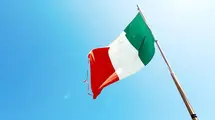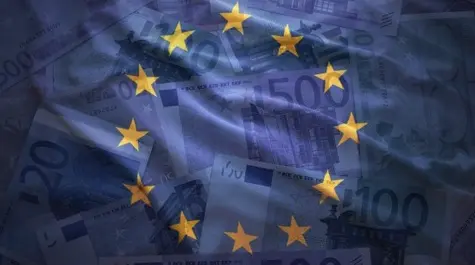
Eurozone Rates Show Resilience Amid Equity Volatility
Euro rates are more focused on the improving macro story than on AI-driven equity jitters. This also means that Bunds may not prove an effective hedge against an equity sell-off

Euro rates are more focused on the improving macro story than on AI-driven equity jitters. This also means that Bunds may not prove an effective hedge against an equity sell-off

Wage growth was slightly higher than expected in September. This growth in purchasing power could overcome the Hungarian economy’s Achilles heel: a lack of confidence. In the coming months, inflation will fall and wages will grow strongly

At a calm press briefing, the National Bank of Romania unveiled its November Inflation Report, announcing upward revisions to its inflation trajectory. The overall message conveyed stability, indicating that the Bank remains on a steady course despite the higher projections

Today marks the start of the US Supreme Court hearings regarding the legality of some of the US administration’s tariffs. A ruling is expected before the end of the year

EUR/USD continues to grind lower as it has for the last week. Rate differentials have not moved much at all this week and in fact have been mildly supportive for EUR/USD.
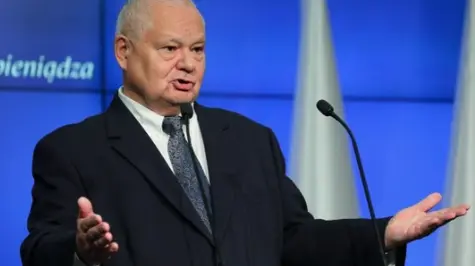
The National Bank of Poland (NBP) has repeatedly warned of upside risks to inflation over the medium term, but this has not prevented the central bank from cutting rates as inflation moderates. Rate-setters have cut rates at each policy meeting since July, and we expect another 25bp cut on 5 November

The ISM manufacturing index suggests that the US industrial sector remains under pressure from weak growth and tariff-related uncertainty. The one consolation is that inflation pressures appear to be easing, but the Fed hawks will want to see broader evidence of this before backing a December rate cut

The Bank looks likely to keep rates on hold on 6 November, despite better inflation and wage news. The committee is deeply divided, and we don't expect clear signals on the Bank's next steps. But assuming the Autumn Budget goes as expected, a December rate cut now looks more likely than not

The Reserve Bank of Australia is expected to hold rates steady. Other highlights of the week include key data on China, Japan, South Korea, Taiwan and the Philippines

Although September retail sales growth fell short of expectations due to weak food sales, the sector still performed strongly thanks to robust durable goods demand. When combined with solid industrial production and construction data, along with anticipated strength in services, this supports our projection of 4%YoY growth for 3Q25

Concerns about the US credit market have eased further since the weekend, prompting a hawkish repricing in the Fed curve and justifying a stronger dollar. EUR/USD may slip all the way to 1.160 in the next few days, but it may require a hot US CPI print to extend the drop. Elsewhere, Japan’s new PM Takaichi was confirmed by parliament this morning
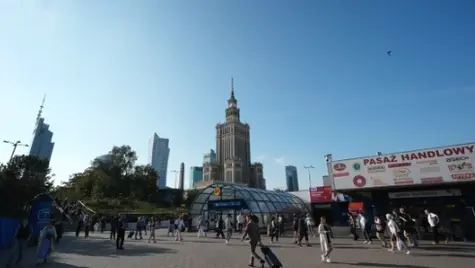
Poland's industrial output surprised positively in September, but the outlook is uncertain as some auto producers plan plant closures and production pauses by the end of 2025. Wage growth in services is easing; employment is falling amid labour shortages. Policymakers may await more data before resuming rate cuts in 2026

Our economics team expects Wednesday's UK services inflation to undershoot the BoE's projection with a 4.6% read, which is also below the 4.8% consensus. That can modestly move the needle to the dovish side in the GBP swap curve and weigh on the pound this week.

The dollar is trading towards the top of its trading range, buoyed by the lack of US data and some challenges faced by the euro and the yen. Yet US consumers remain fearful of their employment prospects, and we doubt the Fed will stray from its path toward two more rate cuts this year. Lower US hedging costs and seasonal trends suggest recent $ strength won't last

The US government has shut down from today as politicians failed to agree on a plan to continue funding it. This is not the first time this has happened, and it certainly won't be the last.

Last week ended on a positive note despite fresh tariff threats on pharma, trucks and kitchen cabinets. PCE data coming in line with expectations helped keep investor mood sweet after a week of hesitation. The S&P 500 rebounded after a three-day retreat, the Stoxx 600 held above its 50-DMA, and even the pharma-heavy SMI index bounced from August lows – confirming that trade news has become usual bad news.

Volatility is back again after relatively unsurprising sessions since the past week FOMC.
It seems that the since last week, the 2025 theme of currency debasing, seeing a huge rally in metals (Gold, Silver at their yearly highs) and equities was intact after the September meeting which resulted in a cut.

The Swiss franc is sharply lower on Thursday. In the North American session, USD/CHF is trading at 0.8013, up 0.78% on the day.

Despite the best efforts of today’s US GDP report, which upgraded Q2 growth estimates by some margin, US equities trade lower in today’s session and look to set to continue a three-day losing streak.

LME copper prices surge to the highest in more than a year on Freeport’s force majeure

GBPJPY is one of the most volatile FX pair available to trade including only major currencies – Yet, it's been stuck in a huge range since August 2024.
As explained in our previous article on this currency pair, a continuous uptrend from 2020 lows (127.30!) to July 2024 highs (208.12) has been met with a sharp correction as carry trades saw a consequent slowdown amid a sudden market-breakdown which suddenly saw yen rebuying speed up.

Inflation in the eurozone ticked up from 2% to 2.1% in August on the back of slowing energy price declines. Core inflation remained unchanged at 2.3%, confirming a rather stable inflation climate despite ample risks to the outlook

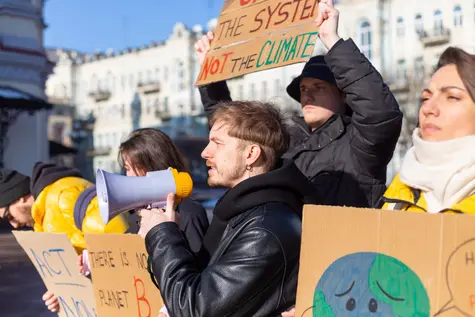
This week could have started calmly, with investors digesting Friday's policy shift at the Federal Reserve (Fed), consolidating recent gains and repositioning ahead of the all-important Nvidia earnings due Wednesday. But instead, Donald Trump chose to keep markets on edge by announcing the dismissal of Fed Governor Lisa Cook over alleged mortgage fraud.

Chair Powell could have been super balanced, or even hawkish. But he effectively chose to endorse the market discount for a rate-cutting phase ahead. It's had quite the reaction. Risk assets are up, the dollar down, so's the front-end yield. Watch longer tenor yields though - the deep thinkers of the bond market, and not quite convinced cuts are all good

Log in to today's North American session Market wrap for August 19
After the consecutive days of White House invitations of key leaders, Markets start to price in a much higher chance of at least a truce which could be evolving to a longer-standing peace in Eastern Europe.

ICE has decided again not to include the EU bonds in its sovereign indices, sending EU speads wider. In the broader context EU bonds are still part of a considerable smaller AAA-universe since the last US downgrade

The Trump-Zelenskyy meeting just concluded at around 15:00 ET, leaving place to the ongoing meeting between Trump and a flurry of EU leaders.

Thursday likely sees US PPI core inflation back up to 3%, while core CPI inflation was confirmed earlier this week at 3.1%. In all probability these inflation rates will be on the rise in the coming months, and can easily touch 4%. We see, for example, how proposed eSLR changes are good for Treasuries. But Treasuries can't fully ignore evolving inflation data

The proposed recalibration of the enhanced Supplementary Leverage Ratio, which applies to Global Systemically Important Banks and their subsidiaries is open for public comment until 26 August 2025. Here we assess what it might mean. Even without special treatment for Treasuries, it has the capacity to meaningfully add banking influence to the market

South Korea’s unemployment rate fell unexpectedly to 2.5% in July, despite private sector hiring softening. Although weak domestic demand requires supportive macro policies, the BoK is likely to take a wait-and-see approach in August to see if property prices m

The UK jobs market is undoubtedly cooling, though a more modest fall in payroll employment suggests that the worst may be behind us, following big tax and Living Wage hikes. Better news on wage growth suggests the Bank can still afford to cut rates in November, though after last week's hawkish meeting, this call has become less clear-cut

We expect the FX market to remain predominantly driven by data, and continue to treat expectations about a potential ceasefire in Ukraine with caution ahead of Friday’s Trump-Putin meeting. We expect an above-consensus 0.4% MoM core CPI tomorrow, but any dollar support may only prove short-lived as a September rate cut remains on the cards

Softer growth and inflation data for the second quarter are likely to convince the Reserve Bank of Australia to cut rates, following its cautious stance in July. Markets are fully pricing in this August cut and another one by year-end (which we also expect), meaning downside risks for AUD are limited. We have revised our AUD/USD forecast higher

The Philippines' GDP growth picked up in the second quarter compared to the first, largely driven by a surge in goods exports ahead of tariffs being implemented. We don't believe that the relative strength in today’s data will deter the central bank from cutting rates in August, as CPI inflation remains firmly below the inflation targe

The incoming industrial and retail data for June did not alter the overall picture of the recent dichotomy in trends. Industrial production continues to decline, while retail sales are rising. We do not expect these trends to change significantly for the remainder of the year

• U.S. corporate earnings resilience persists as tariff impacts become clearer. We stay overweight U.S. stocks but get granular while assessing the tariff fallout.
• U.S. stocks fell and bond yields slid after soft U.S. jobs data suggested slowing activity. We see many macro crosscurrents at play, muddying the outlook.
• U.S. trade data will show how much tariffs are impacting imports. The Bank of England is expected to cut policy rates.

An increase in Japanese exports in the first half of 2025 isn’t shielding profit margins from tariff pain. Exports spiked in the first quarter amid front-loading, but it led to a significant technical correction in the second quarter. Cutting prices might have helped absorb some tariff impacts, but it’s sacrificing profit margins

Taiwan's GDP growth surged to 8.0% YoY in the second quarter as external demand contributed a whopping 5.8ppt. We have been nudging our forecasts higher in previous months, but consistently stronger-than-expected data merits a more aggressive upgrade, and we are now revising our 2025 full-year growth forecast to 5.8% YoY

Dutch pension reforms are underway, adding to the upward pressure on longer-dated euro rates. The eventual flows are hard to estimate, but the DV01 impact from unwinding interest rate hedges could be €500m. We may also see a broader rebalancing of the fixed income portfolio, whereby government bonds will be reduced. But delays are still a risk

Despite a long list of nearer-term downside risks for the economy, the announced fiscal stimulus is still working its magic – and German businesses are continuing to ride the wave of optimism

April's hike in UK payroll taxes and the National Living Wage are squeezing hiring but keeping pressure on inflation. We think the former is a bigger concern than the latter, but for now the bar for faster Bank of England rate cuts appears high. We expect cuts in August and November

While the market may not be surprised by the European Central Bank holding rates, the debate about a September or December cut remains very much alive, although we may not get an answer yet. Markets have been firmly convinced of an ECB landing zone at 1.75%, but a weak PMI reading combined with a setback in trade negotiations could challenge this

News of a US-Japan trade deal, though details remain vague, sent equities higher, with the Nikkei rising 3.5% during the morning session. However, the USDJPY and Japanese government bonds declined as fiscal concerns and reports of Prime Minister Shigeru Ishiba stepping down soon

The stabilisation of the US dollar hit an air pocket last week after reports suggested that President Trump was on the cusp of firing Fed chair Powell.

US President Donald Trump’s 90-day trade reprieve is ending. Tariff noise is back, but does it really matter? US inflation has stayed surprisingly benign and the economy is holding up, despite the rollercoaster so far. But expect that to change, writes James Smith, as he and the team tackle another big week in the world of macro and markets

Asia's manufacturing PMI improves, but trade risks are looming. Manufacturing PMI improved for Asia in June, reflecting a slightly positive business sentiment and helped by a massive reduction in tariffs on China in May. However, looking ahead, we expect Asia export growth to slow, resulting in softer manufacturing and overall GDP growth

How President Trump's plans will impact the US deficit. Big isn’t beautiful when it comes to government debt, but tariffs and the Department of Government Efficiency (DOGE) help to plug the hole left by President Trump’s latest fiscal bill. The net effect will be weaker growth, with US government debt remaining on a worrying trajectory

In the potential absence of federal government incentives, enhancing revenues and reducing costs is key to many clean technology developers weathering the new political environment

Increased defence spending by European countries will hit households hard. We're not overly convinced by the positive effects on GDP growth. But if Europe works more closely together, member states could significantly mitigate the downside. It's another challenge for NATO members, currently meeting in the Hague

The initial CSRD reporting discrepancies hinder comparison. Despite that, we derive several highpoints, for example, some corporates found materiality in all ESRS topics, while none of the banks did. Improvements could be expected as reporting experience grows, but the sustainability Omnibus adds uncertainty to this messy start.

China's May data was mixed with strong retail sales, but soft readings on fixed-asset investment and property price. Overall, though, data suggests that China remains on track to achieve its growth target in the first half of 2025

UK GDP fell faster than expected in April, but these figures have been volatile lately owing to tariff frontloading, coupled with some possible issues with seasonal adjustment. After a strong first quarter, a weaker jobs market and economic uncertainty point to more muted growth rates for the remainder of this year

Eurozone industrial production dropped sharply in April, partly wiping out the front-loading surge of the first quarter


While the Trump administration's policies may weigh on some areas of the sustainable investing universe, opportunities with strong commercial economics still exist.

Diplomatic efforts have intensified to stop the fighting between both Russia and Ukraine as well as Israel and Hamas. But a durable resolution to both conflicts will not be easy to achieve. The public disagreement in the White House between President Trump and his Ukrainian counterpart underlined the challenges.

The US dollar is little changed at the start of this week as it continues to trade at weaker levels following last week’s sharp sell-off. The dollar index has fallen back below the 104.00-level giving back all of its gains since the US election victory for President Trump.

While Germany is still digesting and debating Sunday's election results, the latest Ifo index reading suggests that the economy remains stuck in stagnation.








